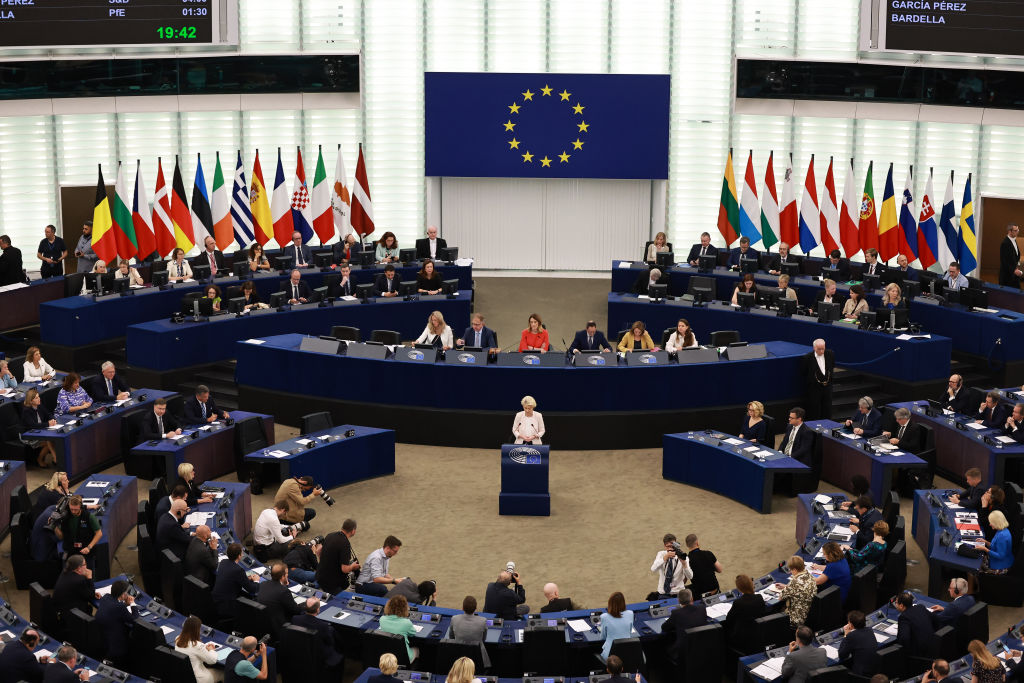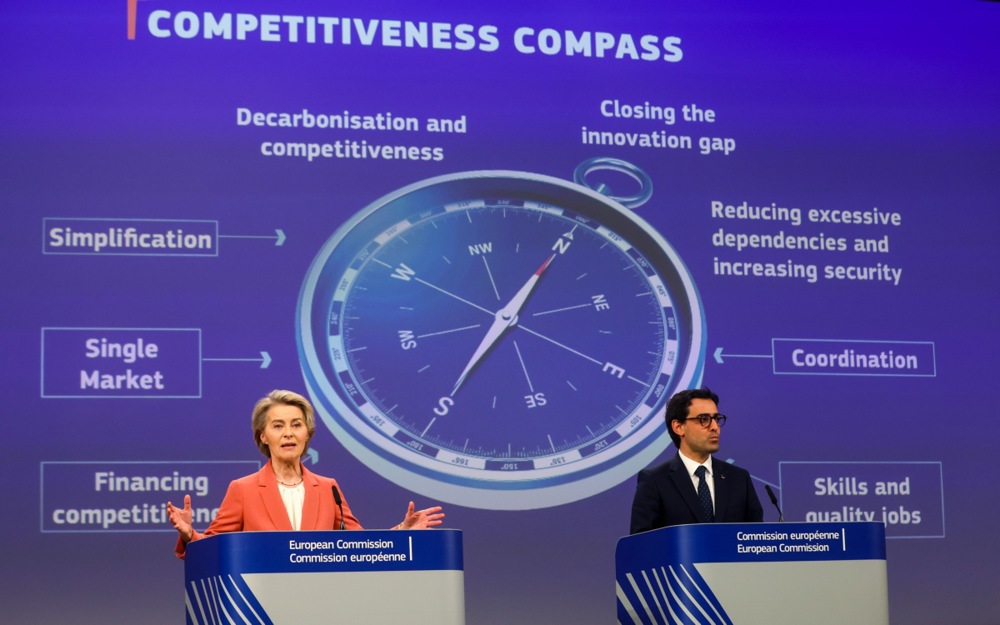The current President of the European Commission, Ursula von der Leyen, is rumoured to be in line to become the next President of Germany.
According to German media, Chancellor Friedrich Merz is floating her name for the role.
News magazine Der Spiegel reported on August 25 that those in government circles were considering von der Leyen, despite the fact she was only re-appointed as EC President in late 2024.
As that mandate lasts five years, she would have to resign half way through her term in office to run in the German presidential election in February 2027.
According to Der Spiegel, the EC chief has proven herself in Brussels with the Green Deal and help for Ukraine. A move from Belgium to Germany would not be seen as a substantial step back and von der Leyen could become the first female President of Germany.
She was already the first female Minister of Defence in Germany and is the first woman EC President.
“I can very well imagine that in 2027 we will elect a woman as Federal President for the first time in the history of the Federal Republic of Germany. That would be good,” Merz said on August 24, according to German news agency dpa.
On the negative side of the ledger, again according to Der Spiegel, von der Leyen “does not radiate much warmth”.
Former European Commission Vice President Frans Timmermans has opened up about his impersonal relationship with EC President Ursula von der Leyen, describing the Eurocrat as being “ruthless” in her dealings with certain political opponents. https://t.co/IY1zLT6uiJ
— Brussels Signal (@brusselssignal) August 13, 2024
She would be 68 by the time of the German election.
In January this year Von der Leyen cancelled several engagements planned for the first two weeks after contracting “severe pneumonia”.
The EC’s top bureaucrat has been under increasing scrutiny in Europe from across the political spectrum after refusing to disclose text messages with Pfizer CEO Albert Bourla concerning Covid-era contracts worth a reported €35 billion.
On the Right, there has also been discontent about her championing of the EU’s Digital Services Act, which many see as infringing on free speech. Her fervent support for Ukraine, meanwhile, has triggered accusations that she has trodden on rights normally reserved for national capitals.
On the Left, there have been questions regarding her alleged willingness to work with the “far Right” and her about-turns on promises regarding the Green Deal and other environmental policies.
In a reaction to Brussels Signal on August 27, MCC Brussels research director of the Werner J Patzelt noted that the German president was elected by the federal assembly. That comprises the 630 members of the Bundestag and 630 delegates from the State parliaments, appointed in proportion to the political majority ratios in each.
If no candidate secured an absolute majority in the first two rounds of voting, the federal president would be elected by a simple majority.
“The upcoming state elections are likely to further bolster the AfD,” the professor said.
“Currently, it holds 304 seats in the 1,260-member Federal Assembly. The federal president might still be elected in 2027 without the [Alternative for Germany] AfD’s support, but this would require a candidate whom all members across the centre and the Left could agree upon.
“Alternatively, the CDU/CSU [Christian Democratic Union/Christian Social Union in Bavaria] and AfD could reach an agreement on a federal president, as they presently have an absolute majority in the federal assembly.
“These party political considerations are important because the election of a federal president has often preceded future Bundestag coalitions. Therefore, the debate about a federal president candidate is not only about individual candidates but also about how well they match the desired political direction,” Patzelt said.
“Ursula von der Leyen, as the candidate of CDU and CSU, would certainly not be elected by the AfD, but possibly by the SPD [Social Democratic Party] and The Greens, yet only if she does not deviate too much from the Green Deal of her first term as Commission President during her current term.
“Currently, there is no alternative candidate in sight, nor any indication of potential co-operation between the CDU/CSU and the AfD. Nevertheless, the political situation in Germany remains unstable. Surprises are therefore likely.
“In this context, it is sensible for Ursula von der Leyen to make clear that she does not intend to resign from her role in Brussels, even though she has previously expressed interest in becoming German federal president,” Patzelt concluded.
The function of the German president is primarily a ceremonial one. He or she serves as the head of state but does not govern the country or set political direction.
Instead, the role is largely representative: The president embodies the State, represents Germany abroad on official visits, receives foreign ambassadors and signs legislation into law once it has passed through parliament.
The officeholder is also responsible for formally appointing and dismissing ministers, judges and senior officials but these decisions are taken on the advice of the government.
European Commission President Ursula von der Leyen has received the Charlemagne Prize, leading to criticism from MEPs who called the award “a blatant contradiction to the fundamental values for which this prize was originally created”. https://t.co/7v2vl2PJIH
— Brussels Signal (@brusselssignal) May 30, 2025





